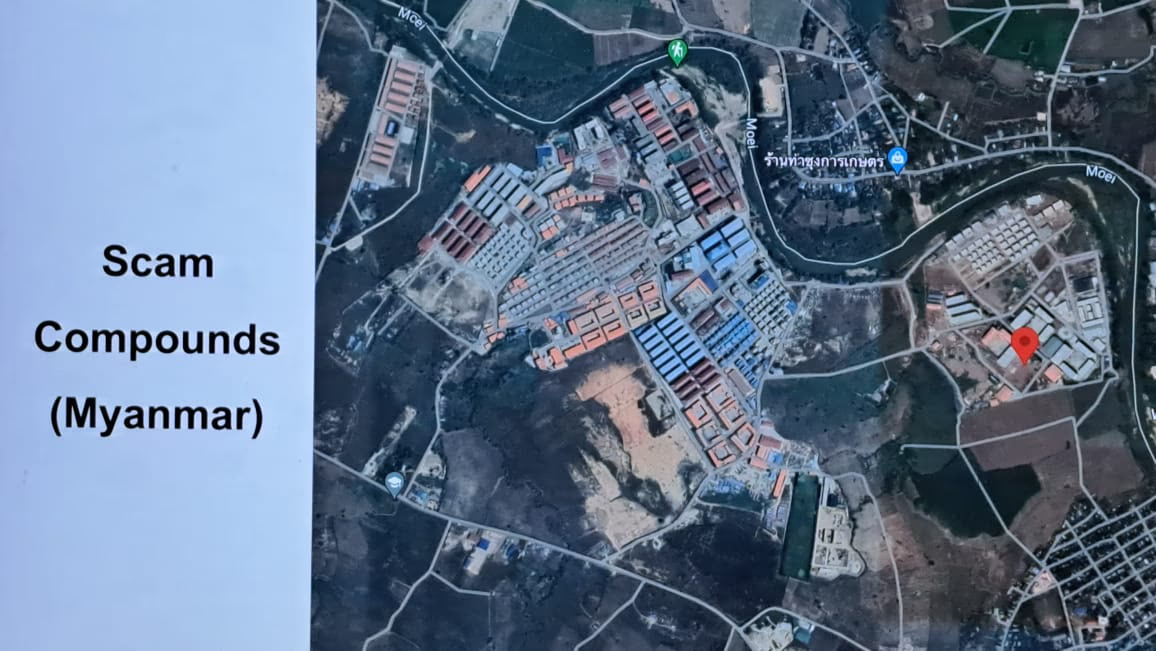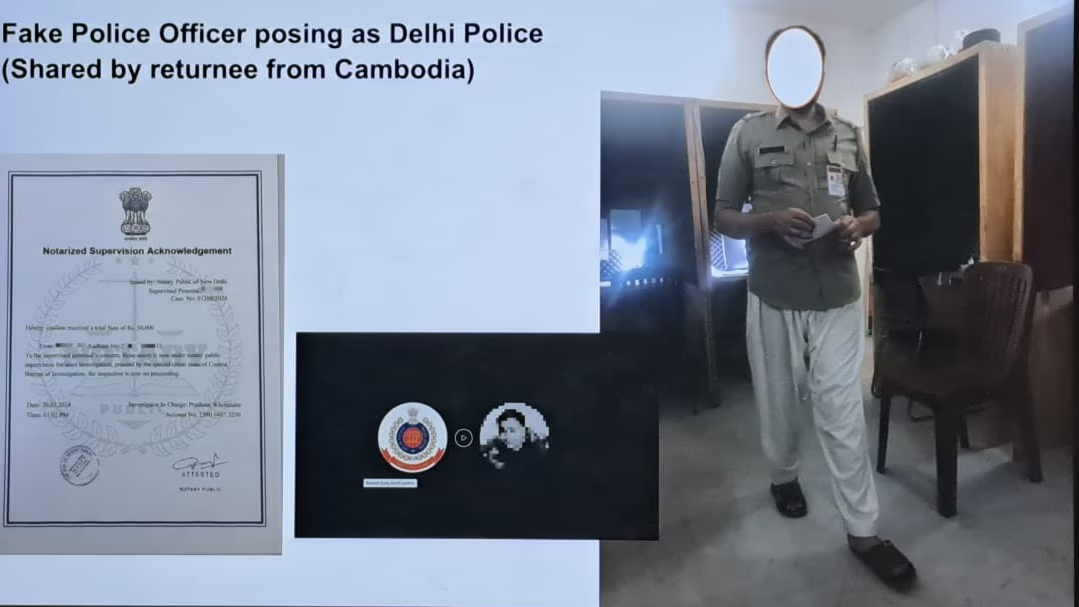In recent days, digital arrests and cyber fraud cases have surged. India Today's sting operation has brought these criminals to light. The India Today Network has uncovered exclusive images of fraudsters posing as Indian police officers to dupe over 6000 Indians. In these photos, captured by India Today, the imposters pretend to be Delhi police officers, intimidating innocent citizens. They issue counterfeit summons and loot millions from their victims.

Source: aajtak
Read More:
Victims Include Bureaucrats and Military Officers
High-profile professionals, including bureaucrats, judges, businessmen, and even military officers, fall prey to these scams. The scammers typically present themselves as government officials, claiming affiliations with investigative agencies.

Source: aajtak
Fraudsters contact victims via phone calls, later using WhatsApp and Skype video calls to con them. In his recent 'Mann Ki Baat' address, Prime Minister Narendra Modi advised caution against such scams, advocating the 'Stop, Think, and Act' mantra. PM Modi also clarified that 'digital arrest' is a nonexistent legal term.
India Today's Sting Operation
In response to the rise in digital arrest cases, India Today's Special Investigation Team conducted a sting operation. The investigation commenced when a courier company contacted India Today's reporter, claiming a parcel in their name was stuck in Mumbai. Allegedly posing as a DHL employee, the scammer informed the reporter that the parcel, sent from Mumbai to Beijing, had not been delivered.
Read More:
Threats of Dire Consequences
The fake officer expressed concern over drug trafficking and interrogated the reporter about the parcel. Threatening severe consequences, the imposter said, 'If even 10 grams are found, you face 3-7 years imprisonment, and your parcel contains 400 grams.' The bewildered reporter denied any connection to the parcel.

Source: aajtak
What is a Digital Arrest Scam?
In a digital arrest scam, fraudsters claim to be police officers or customs officials. Once an audio call transitions to video, victims are often shown a police station-like setup, crafted to convince them they're interacting with legitimate officers.
Scammers falsely accuse victims of illegal activities, fabricating evidence to support claims of an arrest. They even produce forged documents to substantiate their allegations of a digital arrest.




